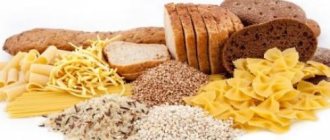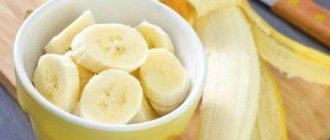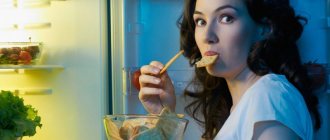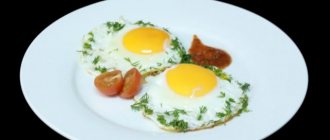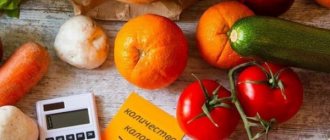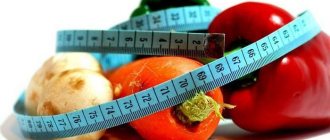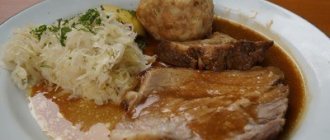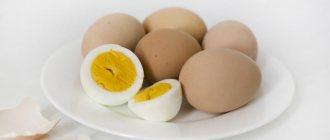For breakfast - oatmeal, for lunch - buckwheat with chicken, in the evening - green salad and whatever else is in the refrigerator. Sound familiar? This often happens when you limit yourself in food and calories all day, and in the evening you are so tired that healthy eating loses its charm and all meaning.
Evening overeating is one of the main causes of excess weight, sleep disturbances and eating disorders. Together with nutritionist Natalya Samoilenko, we tell you why we want to eat at night, how to stop doing it, and what to snack on in the evening if you really want to. And how to get rid of food addiction.
What foods should you exclude from your evening diet?
Insulin interferes with the synthesis of somatotropin, which is why in the afternoon you should exclude simple carbohydrates that cause a spike in blood sugar. Do you have fruit at night, flour products, sweets? They harm hormone production in the evening. Even the healthiest carbohydrates—banana, peach, couscous, pumpkin, or whole grain pasta—will inevitably lead to weight gain if consumed late at night. Milk and dairy products, red meat, and starchy vegetables also have a high insulin index and will not promote weight loss (more about protein for the body).
Causes of night hunger
Experts identify several common reasons for the regular feeling of hunger before bed. Let's look at them in more detail.
Gastrointestinal diseases
A common reason for eating at night is considered to be improper functioning of the digestive tract, namely the production of gastric juice.
As a rule, this disorder is normal in people whose work takes place at night.
The juice produced by the stomach in excessive quantities causes discomfort (in some cases a burning sensation), which signals the brain about a “false” feeling of hunger. Eating food at night means drowning out unpleasant sensations. But at the same time, the body does not rest, but tries to digest the amount of food received during non-working hours.
Thus, a person aggravates the problem, which subsequently leads to the development of more serious diseases such as gastritis and ulcers.
Stressful conditions
When any stressful condition occurs, the body experiences nervous exhaustion and emotional fatigue.
At the same time, a person’s self-preservation system is triggered to temporarily increase the functional capabilities of the body for salvation.
Regular manifestations of stress, depression and apathy activate this system and increase the synthesis of the hormone cortisol, which forces the body to seek and store energy.
Chronic stress reduces the body's protective functions, increasing the risk of infectious diseases.
If you have a nervous state and a constant feeling of hunger, you need to reassess life and take measures to calm down.
Malnutrition during the day
The main and common reason for night hunger is due to the lack of proper daily routine and nutrition.
The human body adapts to the resulting conditions, which affect the functioning of the biological clock and the endocrine system.
If you follow proper nutrition and a daily routine, after 6 pm a person begins to produce the hormone melatonin, which is responsible for normalizing sleep. And the hormone leptin, synthesized during the daytime, causes the desire to eat delicious food.
If the daily routine is disrupted, the production of hormones also changes, therefore, a person has no appetite during the day, and begins to awaken closer to night.
What can you eat at night?
Light proteins, vegetables and the right fats contribute to the proper functioning of hormones, quality sleep and recovery. Choose a light late-night snack.
Seafood
Ideal dinner combinations include baked white fish on a bed of asparagus, a seafood cocktail with avocado and baked spinach, or a Greek salad without feta. These dishes are rich in protein, easy to digest and fill you until the morning.
Nuts
Pistachios, almonds, and walnuts are a good source of vegetable protein, fiber and healthy fats. But pistachios have a big advantage over others: the shell. This means that it will take you longer to eat and your chances of overeating are significantly reduced. But we do not advise tempting fate and recommend weighing your portion in advance. 562 calories per 100 grams is no joke.
Hummus with vegetables
Ideal for an evening snack. Chickpeas are rich in vegetable protein and fiber, and low-calorie cucumber and celery will protect you from overeating. In addition, the spices in hummus will help speed up metabolic processes in the body. The main thing is to forget about store-bought hummus with preservatives and make it at home. It tastes so much better!
Green salad
It will help satisfy hunger and will not affect the quality of sleep. Leafy greens are the safest option for a large, filling late-night dinner with minimal calories. Add a little olive oil to arugula, spinach and basil and forget about hunger at least until the morning.
Dairy products
You can eat low-fat cottage cheese, kefir, yogurt, and natural yogurt at night - they effectively save you from severe hunger in the evening. Each product contains light protein. The body easily absorbs it, is saturated with it and is not overloaded. To lose weight, a serving of dairy should not exceed 250g. If you choose fermented milk products, add a spoonful of cinnamon, vanilla or honey.
Carbohydrates
If there is a lack of carbohydrates in the student’s diet, which are very important for the child’s body, then a decrease in the overall tone of the body may be observed.
But one should not mistakenly assume that the child should be fed a large amount of fast carbohydrates, usually sweets, since they provide energy for a very short period of time, and in principle they are not healthy.
It is much healthier to feed the student slow and correct carbohydrates: bread consisting of wholemeal flour, whole grain pasta, mushrooms.
Minerals and vitamins
Substances contained in berries, fruits and vegetables significantly increase a student’s intellectual abilities. A schoolchild's diet must include bananas, spinach, broccoli, garlic and tomatoes.
Foods that are good for the mind or how to activate your brain before an exam:
1. Cocoa
This drink is considered a very effective stimulant for brain activity. It contains theobromine and antioxidants. The drink is able to increase blood circulation in the brain and the flow of blood to its important areas, as a result of which the child’s memory and reaction improve, and the ability to solve problems increases.
After drinking a cup of cocoa, the effect lasts about three hours. In addition, the student’s mood improves and depressive syndrome disappears, which is considered very important for students taking the exam.
To get the perfect cocktail for your upcoming brainstorming session, all you need to do is:
- Mix 1 tablespoon cocoa and 1 tablespoon coffee
- A pinch of cinnamon and a pinch of cayenne pepper.
- Brew all this with milk and give the child the finished drink.
2. Nuts
According to scientists, nuts affect the functioning of the heart, and it, in turn, has a good effect on the functioning of the brain. Nuts prevent the appearance and also improve the child’s cognitive abilities. Nuts are high in healthy fats, Vitamin E and antioxidants.
Walnuts look a lot like the human brain, and for good reason. They are more beneficial than other nuts for a schoolchild's brain, due to the fact that they contain a high content of omega-3 fatty acids.
Walnuts also contain a substance that produces serotonin, which is responsible for happiness and pleasure. Vitamins C and PP, which are found in walnuts, also improve brain function.
In addition to walnuts, eating cashews and almonds has a positive effect on brain function.
3. Oatmeal
Oats are rightfully considered one of the healthiest grains. It is able to stimulate blood circulation in the brain, rich in B vitamins, which is a storehouse of energy. It is energy that is necessary for all cells of the body, including the brain.
4. Oranges
By receiving just one orange a day, your child will receive the daily requirement of , which, according to research, prevents many diseases, including brain diseases. Vitamin C completely protects the human brain from free radicals.
Including oranges in a schoolchild's diet every day can significantly improve the functioning of his brain, which will have a beneficial effect when passing exams.
5. Carrots
This vegetable helps you learn texts by heart faster, since it very actively stimulates metabolism in the brain and throughout the body. Carrots have a positive effect on vision.
If your student has to memorize large amounts of material, grate him carrots and add some vegetable, or better yet, flaxseed oil.
6. Green tea
Substances found in green tea can improve brain function. Green tea can reduce anxiety, help you relax and reduce feelings of fatigue.
Green tea contains antioxidants and polyphenols that protect against mental decline. It can also reduce the risk of diseases such as Parkinson's and Alzheimer's.
Among other things, green tea improves memory and is an excellent product for the brain.
7. Fish
Fish is rich in omega-3 and omega-6 fatty acids and is also rich in phosphorus. These substances are simply irreplaceable for the brain, as they can improve the condition of blood vessels and blood supply to brain cells. Before upcoming exams, it is especially recommended to eat salmon, trout, tuna and mackerel.
Seafood, including oysters
- This is the most useful product. They contain a lot of iron and zinc, which are responsible for reaction speed, the ability to remember information, intelligence and mental acuity.
8. Pineapple
This overseas fruit will help to perfectly cope with memorizing a huge amount of information for any student who is about to start taking exams.
A slice of avocado can have a positive effect on a person's short-term memory.
9. Eggs
Eggs contain many useful substances for good brain function. They contain vitamins B12 and B6, choline, which helps regulate mood and memory, and folic acid.
A lack of these vitamins can cause dementia and depression in the human body.
Eggs have a significant impact on the functioning and development of brain cells and therefore they must be included in a schoolchild’s diet.
10. Legumes
A growing body needs protein, but it is better to get it not from meat, but from eating legumes, which are rich in very important substances necessary for good brain function and strengthening the immune system.
How to have breakfast before an exam
On the eve of exams, breakfast should be given great and special attention. Ideally suited are those foods that are rich in fiber and protein, for example, those that can fill you up for a long time, but will not make your stomach heavy and will not make your student fall into some drowsiness.
Suitable products for preparing breakfast are low-fat cheeses, beans, mushrooms, eggs, low-fat cottage cheese, dried fruits, nuts, especially walnuts, as well as all kinds of cereals. In general, everything that will give your student energy and strength for a long time.
Options for breakfast recipes before upcoming exams
1. Oatmeal with dried fruits and herbal tea
1. Soak one handful of raisins and five prunes for half an hour in 2.5 glasses of hot water, finely chop one handful of almonds.
2. After the allotted time, drain and change the water, put it on the fire and bring to a boil. Then finely chop the prunes.
3. Pour the flakes into boiling water and bring them to a boil, then add salt.
4. Add nuts, fruit and lemon zest to the pan and turn off the heat. Then close the pan with a lid and leave everything to evaporate thoroughly.
5. Just before serving, add honey to the porridge.
2. Herbal tea
You will need:
- 1 tsp currant leaf
- 1 tsp dry mint
- 2 tsp lemongrass
1. Pour boiling water over everything and let it brew for about 10 minutes.
2. Just before serving, it is recommended to add a little honey to the tea.
3. Omelette with mushrooms and fresh juice
1. Peel one onion and cut it into half rings, then fry it in butter.
2. Cut three fresh champignons into thin slices, mix with onion, pepper everything and add salt.
3. Make an omelet while the champignons are fried. To do this, beat two eggs and add 2 tablespoons of sour cream to them.
4. Pour oil into another frying pan prepared in advance and heat it thoroughly, pour the omelette into it, pepper and wait a little until the bottom sets, then sprinkle with 2 tbsp. spoons of grated cheese.
5. Cover the pan with a lid and let the omelette cook, then quickly turn it over.
6. Fry the omelette on the other side for about one minute, placing mushrooms on top at this time. After this, fold the omelette in half and you can serve it to the table.
4. Freshly squeezed juice
Using a juicer, prepare juice from one grapefruit and half an apple. Before serving, add a little honey to the juice and drink it immediately.
5. Breakfast for the nervous
It happens that because of nervous tension, even a piece of food won’t fit into your throat. The student is so scared that he cannot calm down.
Warm milk can come to his aid, and an ordinary banana can give him strength and energy.
6. Banana milkshake
Beat one banana and one glass of warm milk thoroughly with a blender and add nutmeg to the resulting cocktail.
What foods to eat before bed to get a good night's sleep?
Regular sleep deprivation negatively affects memory and can also slow down a person's reaction time. In order to get a good night's sleep and feel a surge of energy in the morning, and not wake up exhausted and sleep-deprived, you need to eat the right foods before going to bed.
Heavy food taken immediately before bedtime can interfere with sleep and make sleep restless, as a result of which a person wakes up in the morning exhausted and sleep-deprived.
Try to eat dinner at least three hours before you go to bed before bed.
It is recommended to have a high fiber cereal for dinner. If you want to sweeten your dinner, then instead of sugar you should add some dried fruits.
Never eat or drink foods or drinks that contain caffeine, such as tea, coffee, cola or chocolate, at least four hours before bedtime.
Some people may be so sensitive to caffeine that they may feel its effects for up to 12 hours.
It is best to drink a glass of warm milk at night, which will help you relax, calm down and fall asleep faster.
Why do we eat at night?
Do you always want to eat something before bed? There may be two reasons. First of all, the issue may be related to the incorrect distribution of the multiplicity of the diet during the day and its caloric intake, explains Natalya. - If there are fewer calories in the first half of the day than in the second to meet energy needs, the body will lose control and require food in the evening. If, in addition, the choice of foods in the evening is incorrect and you give preference to carbohydrates, the desire to eat something at night will be greater.
The second reason is incorrect sleep rhythms. Not going to bed on time can lead to overeating at night. A large number of stress factors suffered the day before will provoke nighttime rises at 3-4 hours, associated with an increase in cortisol and the desire to eat something at this time.
Losing weight: what to eat at work without harming your figure and with health benefits?
Office life is stressful and encourages overeating. To avoid gaining excess weight and stay healthy, physical activity and diet are required. It's good if there is a canteen nearby. There you will find buckwheat porridge or vegetable stew. If not, then hunger will sooner or later make you think about what to eat at work without harming your figure .
There are two options - take something with you from home or buy a snack at the nearest store.
Don't forget that breakfast and dinner should also be dietary.
Drinks that are bad for sleep
There are drinks that, on the contrary, prevent you from falling asleep or, if you manage to fall asleep, make your sleep restless and interrupted.
Alcohol
If you fall asleep after actively drinking alcohol, then sleep will not bring relief - in the morning you will have a headache, feel general fatigue, plus all the “delights” of a hangover. This occurs, in particular, due to depression of the nervous system. In addition, alcohol affects sleep structure.
Although if you use alcohol in medicinal doses, for example, a dessert spoon of cognac at night, it can help you fall asleep, besides, almost all medical tinctures, including those for insomnia, are made with alcohol.
Carbonated drinks
Constant consumption of carbonated drinks, especially at night, leads to chronic lack of sleep. In addition, they cause fermentation in the stomach and intestines, which also makes sleep restless.
Strong tea, coffee
Strong tea and coffee contain a lot of caffeine, which prevents the body and nervous system from relaxing and falling asleep, and sleep rhythms are also disrupted. Therefore, drinking these drinks at night is not recommended.
Nutritional features for all body types: recommendations
There are several body types: ectomorph, mesomorph, endomorph. Ectomorphs differ from others in their low body fat content and fast metabolism. Such an organism is able to quickly digest food into energy and not store fat reserves. This type needs to eat an hour before training , since prolonged fasting will harm the muscle mass of this type of constitution.
The doses of proteins and carbohydrates are maximum. As for mesomorphs and endomorphs , you need to be careful here, especially the latter, and not just count BJUs, but consume them from the right foods. This constitution has a low metabolic rate and easily stores unspent energy in the fat depot. Therefore, the task of the owner of an average and obese constitution is to protect himself from simple carbohydrates before and after training . Those losing weight are allowed simple carbohydrates only for breakfast to raise blood glucose levels. Before morning training, honey, fruits, dried fruits, and dairy products are allowed. The rest of the time your diet consists of:
- Proteins – lean meat and fish, eggs.
- Carbohydrates – cereals, unsweetened and non-starchy vegetables, herbs.
Fortunately, for an ectomorph there are no food or calorie restrictions. As for everyone, it is undesirable to consume large amounts of fat before training , this contributes to a feeling of discomfort in the digestive organs and a decrease in physical activity.
Pre-workout nutrition for weight loss and gain
If you are losing weight , your daily intake will be 2 g of carbohydrate per kg of your own weight, and sometimes 1 g - for example, during the period of muscle drying. Accordingly, the amount of carbohydrates will decrease, and the amount of proteins will increase.
- Before training, will increase to 40 g;
- carbohydrates – will decrease to 20–30 g.
Regarding the period of weight gain :
- carbohydrate needs increase to 4–5 grams per kilogram of weight;
- and proteins up to 3–4 g.
You will divide the total norm by the number of meals, and you will get the norm of BJU before and after training.
Pre-workout nutrition is an important meal for performance. If you have enough nutrients and take them at the right time, you can improve performance and athletic performance, and also prevent unwanted weight loss. If, on the contrary, you receive a small proportion of nutrients, you will start the process of muscle destruction. And eating immediately before training will not allow the body to work fully; undigested food will cause discomfort.
Eggs
Another great opportunity to get rid of the terrible feeling of hunger after eight in the evening. One egg contains only 75 calories, but is rich in protein and will keep you feeling full for a long time. In addition to the fact that they can be boiled, omelet and scrambled eggs are quite suitable for a late snack. To enrich the taste, add fresh or stewed vegetables to your dishes.
Natural yogurt with berries
It is safe to say that natural yogurt will not cause increased appetite within a few minutes after eating it. It does not contain artificial sweeteners, which are responsible for this effect. But there are quite a lot of vitamins and minerals in such a product. In addition, natural yogurt belongs to the category of low-calorie products. If you want, you can add a handful of berries to it.
Dried fruits
Dried fruits are a real salvation for those with a sweet tooth. Indeed, often in impulses of late-night overeating, the choice falls on sweets (cookies, candies, chocolate bars) and other fast food products that do not require preparation. Dried fruits are low in calories and retain all the beneficial substances of fresh fruits. Dried apricots, raisins, prunes - choose what you like best.
Pistachios
Nuts are a very tasty, nutritious and, most importantly, satisfying product. If you are woken up in the middle of the night by a feeling of hunger and you just can’t fall asleep, then it’s worth snacking on them. However, not all nuts are suitable. After midnight, it is best to opt for pistachios - they are lower in calories than their “brothers”. Just 30 grams of pistachios will be enough to satisfy your hunger.
Eat or starve?
Dietitians have differing opinions about evening meals. Some say that the time of dinner should depend on the time when a person goes to bed, others believe that in any case the last meal should be no later than 6 pm . In any case, it is recommended to have dinner 2-3 hours before bedtime, since the body needs to sleep at night.
All physiological processes occurring in the body slow down at night, and therefore food eaten at night becomes a dead weight in the stomach. The food begins to rot, and the poor stomach is forced to digest it in the morning. It is difficult for him to cope with this, so toxins begin to enter our body. As a result, immunity decreases, an unhealthy complexion appears, and hair becomes dull and brittle. In addition, the calories produced are not burned, but are stored as fat on the hips and belly.
However, it is also impossible to put the body on a severe hunger strike . If you eat your last meal at 6 pm, then until about 7 am the body remains without food. Long breaks in eating are stressful, during which the body begins to create reserves in the form of fat deposits. At this time, the enzyme lipoprotein lipase is activated, which sends fatty acids to the fatty tissue located under the skin.
To prevent your body from asking you to replenish your energy supply at 2 a.m., it is recommended to have a snack three hours before bedtime. If you want to eat just before bed, then you should choose foods with a negative calorie content. That is, those that require more energy for their digestion than they produce themselves.
